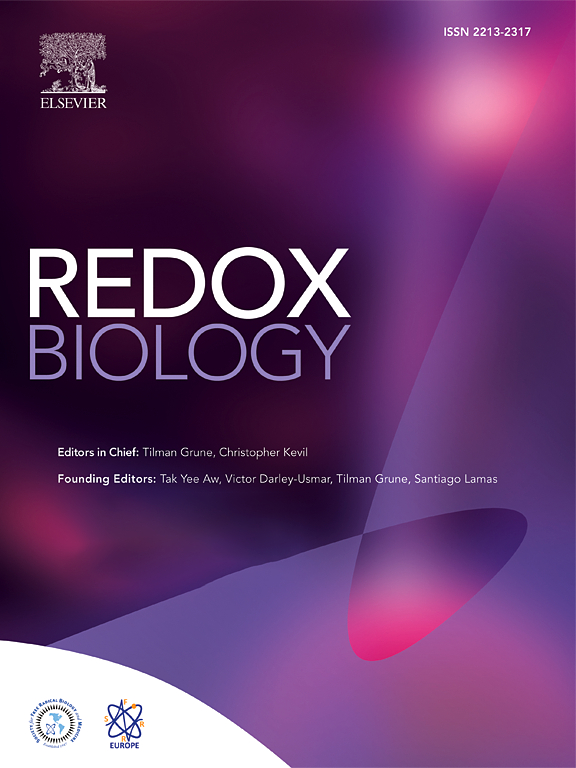Gestational low-protein diet impairs mitochondrial function and skeletal muscle development by inducing immune responses in male offspring.
IF 11.9
1区 生物学
Q1 BIOCHEMISTRY & MOLECULAR BIOLOGY
引用次数: 0
Abstract
Maternal nutrition is essential for proper fetal and postnatal organ maturation and is linked to the future risk of developing metabolic syndrome, cardiovascular disease, and muscle loss. There is still limited understanding how a low-protein intake during gestation influences skeletal muscle development, inflammation, and the related pathways. This study aimed to investigate the impact of gestational low-protein diet in mice on skeletal muscle development and inflammatory responses in male offspring. Pups born from mothers fed a low-protein diet (LPD) were lactated by normal protein diet (NPD)-fed mothers and maintained on NPD post-weaning (LNN group). Offspring born from mothers fed an NPD and maintained on an NPD during lactation and beyond were used as controls (NNN group). In 21-day-old offspring from protein-restricted mothers, RNA-Seq analysis showed upregulation of immune response-related genes, enriching adaptive immunity pathways. Additionally, LNN group exhibited elevated markers of inflammation, along with disruptions in antioxidant defence balance and macrophages infiltration in gastrocnemius muscle at 3 months of age. Energy metabolism was impaired, as indicated by changes in related proteins and enzymes involved in mitochondrial function. We conclude that gestational LPD adversely affects skeletal muscle development in male offspring.妊娠期低蛋白饮食通过诱导雄性后代的免疫反应损害线粒体功能和骨骼肌发育。
产妇营养对胎儿和产后器官的适当成熟至关重要,并与未来发生代谢综合征、心血管疾病和肌肉损失的风险有关。对于妊娠期低蛋白摄入如何影响骨骼肌发育、炎症和相关途径的理解仍然有限。本研究旨在探讨小鼠妊娠期低蛋白饮食对雄性后代骨骼肌发育和炎症反应的影响。低蛋白饲粮(LPD)母鼠的幼崽由正常蛋白饲粮(NPD)母鼠哺乳,断奶后维持正常蛋白饲粮(LNN组)。母亲喂养NPD并在哺乳期及以后维持NPD所生的后代作为对照组(NNN组)。RNA-Seq分析显示,在蛋白受限母亲的21日龄后代中,免疫反应相关基因上调,丰富了适应性免疫途径。此外,LNN组在3月龄时表现出炎症标志物升高、抗氧化防御平衡破坏和腓肠肌巨噬细胞浸润。与线粒体功能相关的蛋白质和酶的变化表明,能量代谢受损。我们得出结论,妊娠期LPD对男性后代骨骼肌发育有不利影响。
本文章由计算机程序翻译,如有差异,请以英文原文为准。
求助全文
约1分钟内获得全文
求助全文
来源期刊

Redox Biology
BIOCHEMISTRY & MOLECULAR BIOLOGY-
CiteScore
19.90
自引率
3.50%
发文量
318
审稿时长
25 days
期刊介绍:
Redox Biology is the official journal of the Society for Redox Biology and Medicine and the Society for Free Radical Research-Europe. It is also affiliated with the International Society for Free Radical Research (SFRRI). This journal serves as a platform for publishing pioneering research, innovative methods, and comprehensive review articles in the field of redox biology, encompassing both health and disease.
Redox Biology welcomes various forms of contributions, including research articles (short or full communications), methods, mini-reviews, and commentaries. Through its diverse range of published content, Redox Biology aims to foster advancements and insights in the understanding of redox biology and its implications.
 求助内容:
求助内容: 应助结果提醒方式:
应助结果提醒方式:


